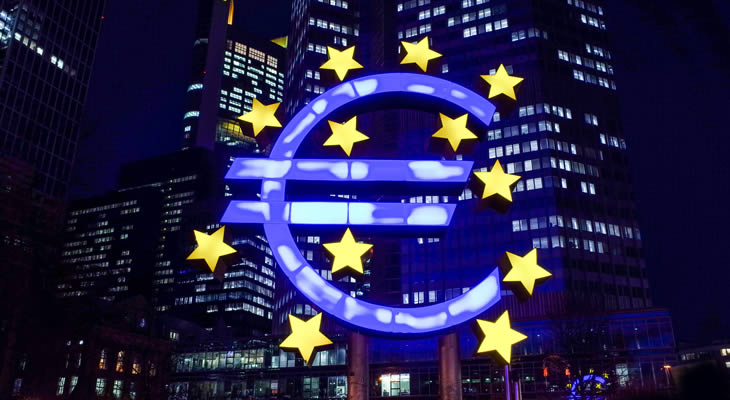UPDATE
The Euro to Pound Sterling (EUR/GBP) exchange rate was trending within a tight range on Monday morning.
After British housing data showed prices cooled in March, the Pound edged lower versus many of its major peers. The outlook for Sterling is somewhat clouded by political uncertainty as we draw ever closer to the general election.
The Euro, meanwhile, is generally holding steady versus most of its major competitors. Whilst traders await the announcement from the European Central Bank (ECB) regarding bond purchases to fund quantitative easing, the single currency is unlikely to be subject to heightened volatility.
The Euro to Pound Sterling (EUR/GBP) exchange rate is currently trending in the region of 0.7125.
At the close of last week, the Euro to Pound Sterling (EUR/GBP) exchange rate was trending within a narrow range.
This is as a result of disappointing data out of the UK and dovish remarks from Bank of England (BoE) officials, causing the Pound to soften versus most of its major peers.
The shared currency declined versus many of its most traded currency competitors in response to divided opinion as to the effectiveness of quantitative easing in the Eurozone. There is increasing concern that such a massive injection of liquidity will boost the large economies and leave the smaller ones by the wayside.
Euro (EUR) Exchange Rate Forecast to Soften on QE
Although there will be several important European economic data publications over the coming week, it is very possible that they will have minimal impact on Euro volatility. This is due to trader focus being dominated by quantitative easing in the Eurozone. Opinions are divided as to whether the QE will be affective, and if it will act as a boost to already dominant economies whilst leaving smaller nations fighting for scraps.
‘The concern is that the bond-buying plan launched on Monday to pump more than a trillion Euros into the 19-country economy will send stronger members such as Germany that could arguably do without the support into overdrive, while fostering complacency among laggards,’ stated Paul Carrel writing for Reuters.
‘While the central scenario is that QE should help on inflation and on (economic) activity, it’s difficult to pinpoint exactly what the effect should be,’ said Francesco Papadia, a former ECB director general for market operations. ‘There is more uncertainty around it, which doesn’t mean that you shouldn’t do it because in a cost-benefit calculation not doing it would be even worse.’
On the chance that European data will have an impact on shared currency movement, there will be several publications of interest. In particular, the German ZEW Economic Sentiment Survey will be of interest, especially to see if the launch of QE has had an effect at this early stage.
Pound Sterling (GBP) Exchange Rate Forecast to Fluctuate
In contrast to the Euro, British economic data is likely to impact on Sterling movement given that the BoE said rate hikes would be subject to data. One of the most important data publications over the coming week will be minutes from the BoE’s most recent policy meeting. This is important because traders will react positively if there have been any dissenters from Carney’s policy outlook.
In addition to BoE minutes; Claimant Count Rate, Jobless Claims Change, Average Weekly Earnings, Unemployment Rate, Employment Change, Public Finances and Public Sector Net Borrowing reports will be of interest to those invested in the Pound.
With Sterling experiencing significant volatility after BoE policymakers make speeches, any news from officials is likely to cause marked changes.
Although fears regarding a Grexit eased towards the end of last week, any signs that the relationship between Germany and Greece is worsening is likely to hae a detrimental impact on the shared currency.
At the close of last week, the Euro to Pound Sterling (EUR/GBP) exchange rate was trending in the region of 0.7130.

